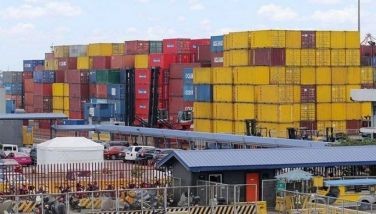Philippine loss from TPP not significant
MANILA, Philippines - The Philippines should not fret while it waits for doors of the recently-forged Trans-Pacific Partnership (TPP) to open, a senior trade official said.
Department of Trade and Industry (DTI) Director Senen Perlada said the country may have missed out on certain opportunities by not initially being included in the United States-initiated TPP but he noted losses would not be that substantial as the country waits for TPP protocols in accepting new members.
“Our hope is we still have the US Generalized System of Preferences (GSP). We still have that US GSP which is unilateral. We really don’t have to give up a lot of things, we’ll just have to make use of the low hanging fruits such as the US GSP,” Perlada said.
In July this year, the US renewed the GSP program when President Barack Obama signed the Trade Preferences Extension Act of 2015. The renewal of the US GSP program is seen to boost the access of Filipino exporters to the US market.
“Remember also that we have other engagements with the others in the group like Japan and New Zealand. So we’re doing very well,” Perlada said.
With the Philippines’ absence from the group, many believe the country would lose out many deals to ASEAN counterpart Vietnam which is part of the TPP.
“It’s really not in terms of what we tend to lose but more on what kind of competition we’re going to be in especially with the Vietnam factor. But basically that’s all the problem I see for now. Vietnam will become our closest competition because they are part of the TPP and we’re not,” Perlada said.
The Philippines for its part has been consistent on its intent to be part of the TPP.
DTI Secretary Gregory Domingo has said the TPP and other bilateral and regional trade agreements are all building blocks for the economic integration of the Asia-Pacific region.
“The group (members of the TPP) has known our intention. So if we’re invited, it is better to be in than out,” Perlada said.
Economies composing the TPP account for 40 percent of the world’s total gross domestic product and undertake almost half of the global trade in merchandise.
- Latest
- Trending



























